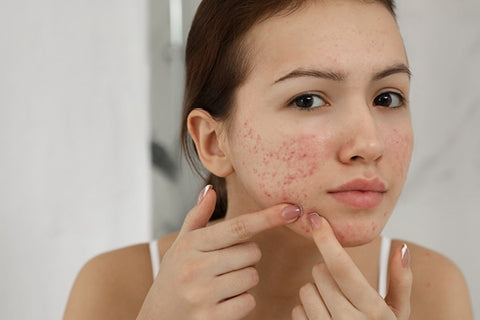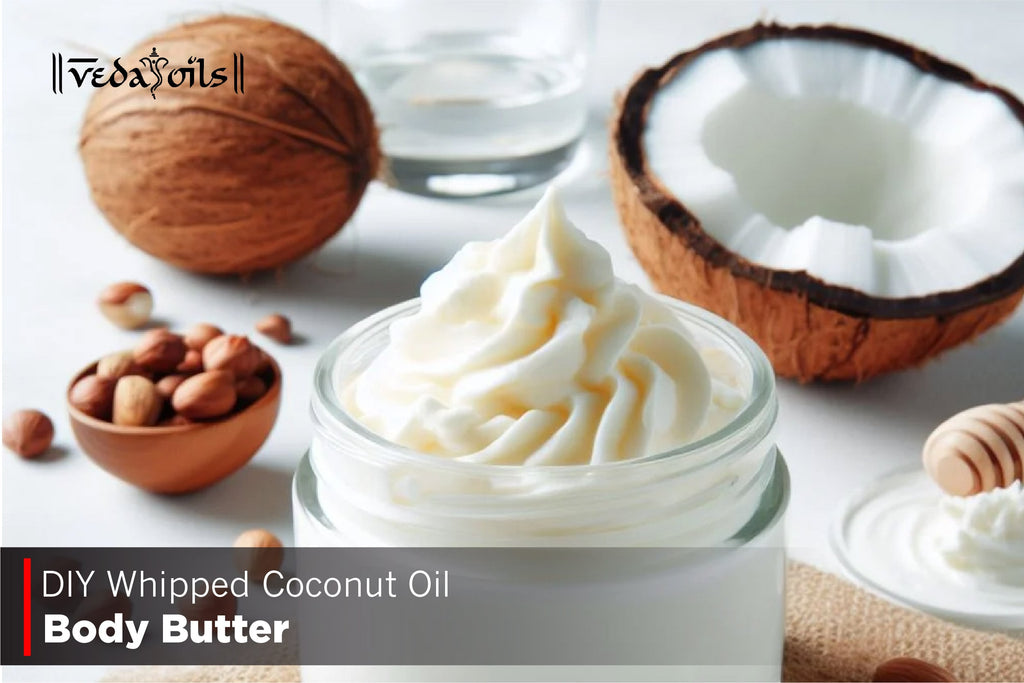Pimples and acne are the things that people are most afraid of And with good cause. They are not only unpleasant but also excruciating, and artificial products only make matters worse. Let's go natural and use argan oil for acne.

Argan oil naturally eliminates excess sebum and provides moisturization because it is rich in antioxidants and amino fatty acids, which make it a killer in treating acne and the scars produced by it. See how argan oil aids in the treatment of acne.
Why Use Argan Oil For Pimples?
Due to its anti-sebum properties, argan oil efficiently controls the quantity of sebum, also known as skin natural oil, on the skin. As excess sebum clogs pores and traps external bacteria beneath the skin's surface, causing breakouts, argan oil can aid in the treatment of various different types of acne as well as encourage a smoother, calmer complexion. After washing your face, remove all the oil for clear skin.
Can You Use Argan Oil For Baby Acne?
Yes, argan oil is extremely suitable to use on baby acne. Argan oil shields the skin against additional illnesses and harm while assisting in the regulation of sebum production.

Baby Acne is a skin rash that is also referred to as Erythema toxic neonatorum. It is typically brought on by hormones that stimulate the infants' underactive oil glands, resulting in pimples. Argan oil shields the skin against additional illnesses and harm while assisting in the regulation of sebum production.
Do a patch test on your infant before applying argan oil to see whether or not they are allergic.
Benefits Of Argan Oil For Acne
Argan oil has many skin-benefiting properties that help to improve and maintain the health of our skin, but how? In this section, we'll learn about the advantages of argan oil for acne.
- Treats Acne Naturally: How is acne treated with argan oil? Natural argan oils are excellent for aggressive acne. They aid in regulating oil production, clearing dirt and debris from pores, and allowing the skin to breathe. And all of this aids in clearing up acne. Linoleic acid, which is abundant in argan oil and is excellent for skin prone to acne, balances oil production when applied to skin that is prone to acne. With a few drops of argan oil, you can say goodbye to acne.
- Excellent Moisturizer: The lightweight, swiftly absorbing qualities of argan oil are what make it hassle-free. But this oil also contains a lot of fatty acids, antioxidants, and vitamin E. Even though this oil is great for treating and moisturizing all skin types, a patch test is still required. It provides long-lasting nourishment and moisture to the skin. The skin doesn't feel greasy or sticky thanks to the light texture.

- Make Skin Glow: Vitamin E in particular, which is abundant in antioxidants in argan oil and helps speed up the production of new, radiant skin cells to replace old, dead ones, can help gradually lighten dark spots over time. Argan oil would brighten skin more effectively if used with other skin-lightening agents including hydroquinone, kojic acid, and arbutin. In 4 weeks, regular use eliminates dark spots and uneven skin.
- Reduces Premature Aging: Age, wrinkles, and fine lines are indications of wisdom; nonetheless, premature aging can cause misunderstandings. Argan oil can act as a natural moisturizer, locking in moisture and enhancing skin suppleness. The face becomes more radiant, fuller, and tighter as a result. Regular application not only provides future weather protection but also removes wrinkles, fine lines, and other aging symptoms.
- Anti-Bacterial Protection: Argan oil is full of both fungicidal and antibacterial properties which make it an amazing anti-bacterial ingredient and allow argan oil to lessen viral infections and fungus protection. Vitamin E and antioxidants in this oil help treat skin disorders including eczema and psoriasis and prevent the growth of bacteria that cause pimples. Regular application of this oil guarantees to provide calming relief from skin irritation, fungal infections, and redness.
How To Use Argan Oil For Acne Prone Skin?
Due to its lightweight makeup, argan oil can be used in a variety of ways, allowing you to customize how you make use of its benefits. In this section of the article, we'll examine how to treat acne with argan oil.

Argan Oil As A Moisturizer
Since argan oil is a natural moisturizer, you can apply it directly to your face without mixing it with anything. Simply use a few drops of argan oil to cover the entire face. In the morning, apply sunscreen after leaving it on all day.
Argan Oil As A Facial Oil
Additionally, argan oil can be applied to the face. A few drops should be applied to a clean face. Allow it to sit for at least five minutes. After it has been absorbed, apply your preferred moisturizer. By including other carrier oils, such as virgin coconut oil, olive oil, jojoba oil, etc., you may make your facial oil even more luxurious.
Argan Oil As An Overnight Treatment
Can argan oil be left on overnight? The answer is unquestionable yes! As an overnight skin restoration treatment, argan oil, which contains natural minerals and amino fatty acids, is excellent. A few drops should be applied to a clean face, then left on overnight. Your skin will be silky when you awaken. Use a minimal amount—just a few drops.
Precautions For Using Argan Oil For Acne
Since argan oil is typically regarded as secure, dilution is not necessary. However, some skin types are sensitive to the oil and may experience a ticklish, burning, or itchy feeling. It must undergo a patch test before being used. Additionally, overuse can result in an increase in pimples.
Conclusion
Argan oil is helpful in treating a variety of skin-related conditions and is particularly effective at fading acne scars. Use the best grade premium 100% pure argan oil on your skin whether you use it directly or in a DIY recipe. Visit VedaOils.com to find the best argan oil for acne-prone skin. Visit the posts area of the page while you're there to explore additional ways to use argan oil every day.
Frequently Asked Questions
Q.1 Is Argan Oil Bad For Acne?
Ans: Argan oil is normally considered to be safe for the majority of people. However, for some people, using it could have a slight negative effect. When argan oil is applied topically, the skin might become irritated. This could cause rashes or acne to appear. Consequently, a patch test is necessary before use.
Q.2 Is Argan Oil Bad For Fungal Acne?
Ans: Both fungicidal and antibacterial properties are seen in argan oil. As a result, it can help with the treatment and avoidance of both bacterial and fungal skin infections.
Q.3 Can I Use Argan Oil For Acne?
Ans: Sebum production on the skin can be efficiently controlled by argan oil's anti-sebum qualities. This can promote a calmer, smoother complexion and help treat different types of acne. Apply argan oil directly to your skin or argan oil-containing face creams as least twice each day.
Q.4 How Long Does It Take For Argan Oil To Treat Acne?
Ans: Apply argan oil directly to your skin or argan oil-containing face creams as least twice each day. Benefits should start to become apparent after four weeks.












 Sign in
Sign in Register now
Register now My Reward Points
My Reward Points









